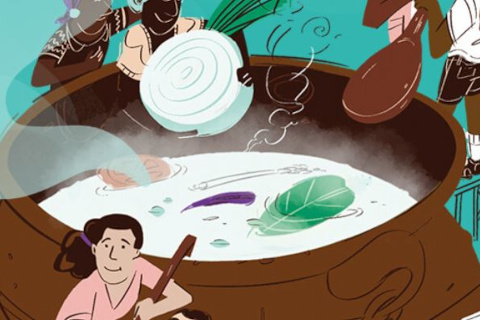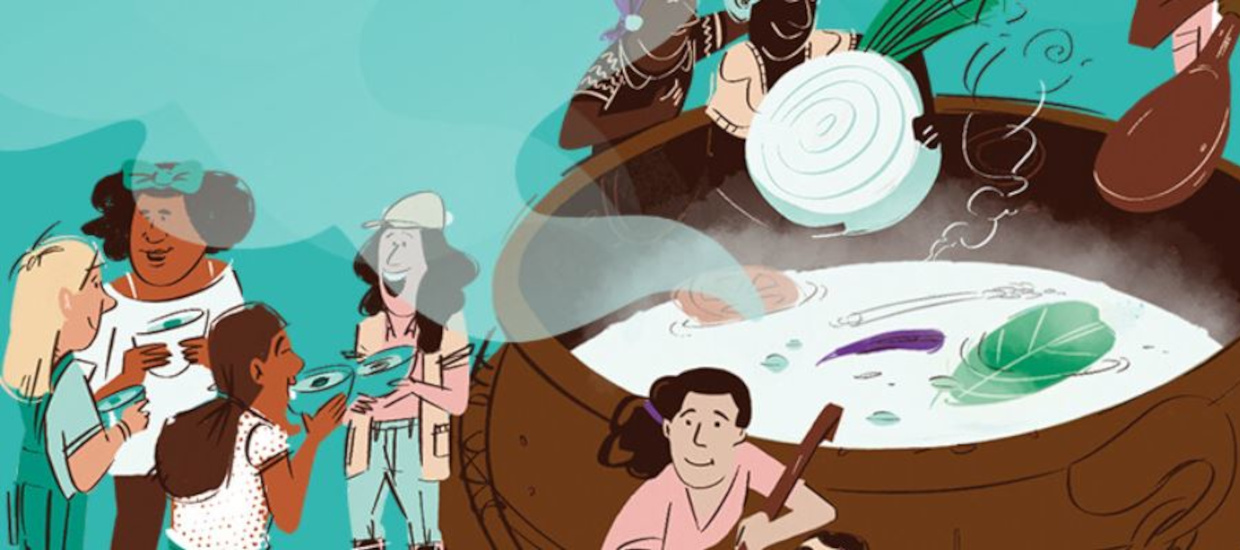Advocacy
Realizing the Right to Food of Indigenous Peoples, Peasants, and Rural Women
Indigenous Peoples, small-scale food producers, and rural women and girls experience poverty and hunger at disproportionate levels around the world, in spite of the international legal frameworks designed to protect them. Although women produce and provide food, they are often the last ones to access food for themselves. Female farmers are responsible for cultivating, ploughing and harvesting more than 50% of the world’s food; however, women account for 70% of the world’s hungry and are disproportionately affected by malnutrition and food insecurity. Institutionalized gender discrimination, racism, new forms of colonialism, and structural violence, including environmental violence, impose barriers that prevent Indigenous Peoples, peasants, and rural women and girls from enjoying their economic, social and cultural rights, and specifically the right to adequate food.
The Food Rights Initiative works to promote and defend the human right to food, in particular as it affects rural and Indigenous women and girls. This work has entailed the documentation of violations of the right to food and related rights as well as advocacy at national, regional and global levels.
In October 2021, the HRC together with FIAN Ecuador and the Red de Mujeres Rurales submitted a shadow report to the U.N. Committee on the Elimination of All Forms of Discrimination Against Women for their tenth periodic review of Ecuador at the Committee’s 80th session. This submission was based on the Clinic’s report on the rights of rural and Indigenous women in Ecuador, which was published in collaboration with FIAN Ecuador and Mujeres Rurales del Ecuador in November 2020. The report focused on the right to food and its relationship with the rights to health, education, political participation, and the rights of Nature. The Clinic also supported local, national, and global advocacy by participating in national-level webinars directed at Ecuadorian decision-makers. Please find a web story with additional information.
In July 2021, the Human Rights Clinic published a report on the rights of rural and Indigenous women in Guatemala, in collaboration with groups in Guatemala and the Clinic of the University of Oviedo School of Law in Spain. The report centered on the right to food and its relationship with the rights to be free from gender violence, access to justice, political participation, and the rights of human rights defenders. Please find a web story with additional information.
The Clinic’s elaboration of the Ecuador and Guatemala reports followed months of virtual consultations with women community leaders from both countries. The methodology for these consultations was the one developed for the Cooking Up Political Agendas publication, which was co-authored and launched by the Clinic together with FIAN International and other women’s rights organizations in September 2020. This methodology seeks to provide practical guidance on how to build a local right to food agenda based on recently-adopted international human rights standards.
In February 2020, the Clinic was invited to participate in the regional gathering of Indigenous women of the Americas hosted by the Enlace Continental de Mujeres Indigenas de las Americas (ECMIA) in Mexico City to conduct interviews and strategize with Indigenous women as part of the Clinic’s work supporting Indigenous women’s advocacy at regional and global levels on the right food. Following our participation in this meeting, the Clinic was asked to work alongside the global network of Indigenous women leaders, FIMI, and women’s rights advocacy organization, MADRE, on a submission to the U.N. Committee on the Elimination of All Forms of Discrimination Against Women. The submission seeks to inform the development of a new human rights instrument focused on the rights of Indigenous women and girls, including the rights to food and food sovereignty, and the rights to land, water, and seeds. Please find a web story with additional information.
In November 2019, the Clinic filed a submission to the Working Group of the San Salvador Protocol of the Organization of American States focused on rural and Indigenous women’s right to food. The submission specifically asked for the revision of the Protocol’s right to food indicators of progress so that these can be more inclusive of the rights of women who live and/or work in rural areas. Please find a web story with additional information.
In July 2019, the Clinic filed an amicus brief together with FIAN International, FIAN Brazil, and the former U.N. Special Rapporteur on the Right to Food and current member of the Committee on Economic, Social, and Cultural Rights, Olivier De Schutter, before the Supreme Court of Brazil concerning the case of the Ibirama-Laklãnõ Indigenous Territory. The brief supported a holistic interpretation of the right to food in the context of Indigenous Peoples’ right to their territories.
In March 2019, the Clinic contributed to an amicus brief presented by the former U.N. Special Rapporteur on the Right to Food and current member of the Committee on Economic, Social, and Cultural Rights, Olivier De Schutter, before the Inter-American Court on Human Rights in the case of the Indigenous Communities of the Lhaka Honhat Association v. Argentina arguing that Argentina violated the human right to food of the Lhaka Honhat Indigenous communities. In February 2020, the Inter-American Court of Human Rights issued a landmark decision for Indigenous Peoples, where for the first time the Court analyzed the rights to food, a healthy environment, water, and culture based on Article 26 of the American Convention on Human Rights. In addressing violations of the right to food of Indigenous Peoples, the Court referred to the Clinic’s amicus brief, which explained the links between the right to food and cultural rights. Citing to our Clinic’s brief, the Court noted that “[t]he right to food should not be understood in a restrictive sense. What is being protected by the right is not mere physical subsistence and, particularly in the case of indigenous peoples, it has a significant cultural dimension.”
In March 2018, the Clinic conducted advocacy during the U.N. 62nd Commission on the Status of Women in New York. Clinic students participated in side events focused on women’s access to natural resources and health in the context of the right to food. Additionally, the Clinic contributed to a thematic closed consultation on the use and implementation of the U.N. Food and Agriculture Organization (FAO) Voluntary Guidelines to support the progressive realization of the right to adequate food in the context of national food security. As a result of this consultation, a civil society report on the use and implementation of FAO right to food guidelines, which is also available in Spanish or French, was published. Please find a web story with additional information.





